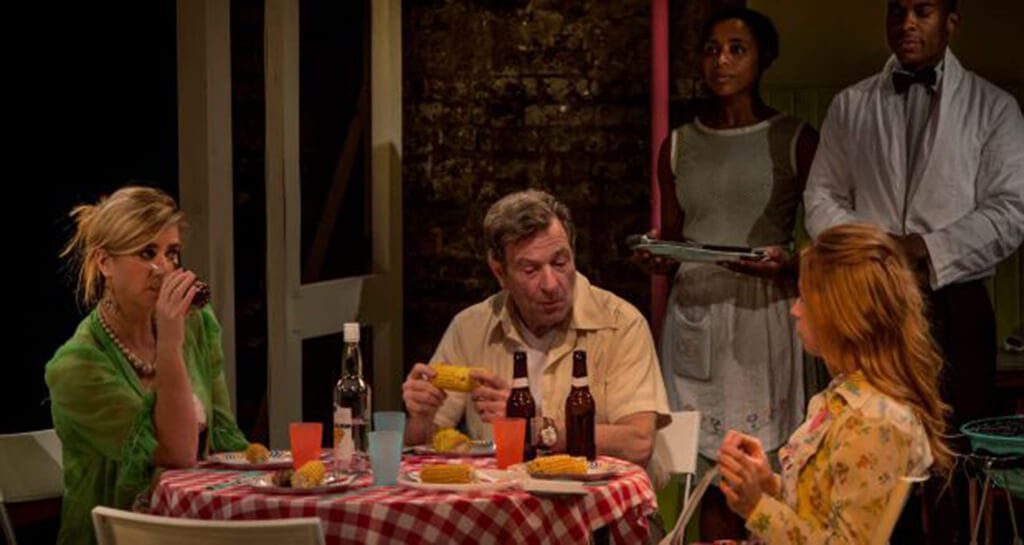The Long Road South brings to this intimate theatre a personal drama set against the background of the civil rights movement in 1965.
The action takes place over the course of one hot afternoon in an Indiana summer. The Price family, Carol Ann (Imogen Stubbs), Jake (Michael Brandon) and Ivy (Lydea Perkins), resent their dependence upon help of their domestic servants, Grace Banks (Krissi Bohn) and Andre White (Cornelius McCarthy). Grace and Andre are leaving for Alabama, to join the voting rights marches. Their self-worth depends upon their participation in this historical moment. The Price family, sensing that without them the family will disintegrate under the pressure of their own personal failures, attempts to prevent Grace and Andre, through persuasion and then coercion, from leaving.
The tension inherent in the negotiations of power and control between the characters is palpable. A slow-simmering rage underlies the routine actions of each of these characters, lending their actions a momentous quality. At the centre is Cornelius McCarthy as the gentle-mannered Andre White, the Price Family’s gardener. Andre is a man reformed through religion; occasionally achingly naïve he struggles to maintain his dignity in a position which denies him just that.
Krissi Bohn burns brightest as the passionate aspiring writer and maid, Grace. Her restiveness suggests the fever of the civil rights movement she desperately wants to join. Michael Brandon, as Jake Price, brings with him all the hostility of an unsympathetic world beyond the intimate setting of the stage. The humility and compassion of the broken housewife, Carol Ann (Imogen Stubbs), provides the only relief from the tension of frustrated desires and manipulative actions of the other characters. Her performance is heightened by a barbed wit and ironic self-reflection.
The tension in the play arises from the distance between who these characters want to be and the constraints of their actual circumstances. This conflict is reflected in the confinement of the action to one unchanging setting, the Price Family’s suburban garden, and the anticipated but delayed departure for Alabama. The increasing suspense builds to a fierce climax as each character must decide how to ensure their own integrity in a world in which conventional social-relations are rapidly dismantled.
The King’s Head Theatre offers a commendable setting for this exploration of personal drama at the height of an historical summer. The proximity of the audience to the stage draws them into the stultifying intimacy of this ‘family’, blurring the boundary between the private and the public. The heat of the stage lights falls equally on the cast and the audience implicating each one in the growing tensions between these characters. The Long Road South reveals that no individual is beyond the implications of this struggle to define oneself in a hostile world.

